As lockdown eases, some bakeries are reopening their doors to eager customers both online and in person, while others have been operational the entire time. Regardless, safety is a top priority.

Bakeries, cafés and other businesses are taking extra precautions to keep staff and customers safe, but for these measures to be effective, they need to be communicated well.
So, what is the best way to do this? Does the communication need to vary depending on the setting, such as on social media or in-store? And what happens if you get negative feedback for all to see?
“Using any website or social media to identify their safety measures is paramount, but it needs to be clear,” explains Jay Evans, head of PR at brand transformation agency Mobas.
He advises keeping messages personal. “As the owner, you should be seen as a person and use that caring ‘we have done this to protect you and us’ tone,” he adds.
Show off your human side, but don’t let that detract from the message.
“While it’s good to keep your language personable and friendly, don’t use fluffy language – stay away from waffle and make your points clear and concise,” says Tommy Gibbs, associate director at Clearly PR. “Your customers want to know that you’re taking it seriously.”
Here’s an example of how Season’s Bakery has handled communications.
Peter Sutton, managing director of PMW Communications, encourages bakers to think about what customers want to know. Are orders taking longer to prepare? Are there some items the business isn’t making right now? How are you ensuring the business operates safely?
“Any slight adjustment in operations is worth communicating,” he believes.
These messages need to extend beyond social media, into the in-store setting and on the website.
Krista Booker, PR director at Fourteen Ten, which includes Dominique Ansel Bakery among its clients, advises creating a dedicated page on your bakery’s website, listing every measure being taken.
“It will provide your team a location to direct any enquiries or issues, so saving time and any potential problems, can be used as a training resource for management and staff, and the URL can be used as a shortcut across communication channels such as added into your IG bio, linked in your newsletters or referred to in printed materials or POS for anyone who needs more detail,” she explains.
Dealing with negativity
The downside of social media is it gives everyone a platform to air their grievances.
“Social media is a fantastic and cost-effective marketing tool,” notes Stephanie Tompkins from Whitmore PR. “The flip side is that the ‘instant’ nature of social means that can also be a vehicle for negative stories to spread quickly.”
So, how do you deal with criticism?
“It is important to demonstrate that the comment has been taken seriously. Act swiftly to nip the issue in the bud and to discourage further likes or sharing online. Respond with an apology and take the conversation ‘off-line’ into a direct message exchange,” adds Tompkins.
When handled effectively, criticism doesn’t have to be detrimental.
“Unless the original post could cause offence, it’s not always beneficial to delete it,” says Sutton. “Other followers will see you in a good light if they can see you responded to negativity quickly.”
One complaint a bakery may experience right now is around availability and delivery slots.
Both Sutton and Gibbs suggest apologising and then explaining the measures you are taking to address this or, if you’re at capacity, explain other ways customers can purchase your goods.
In-store information
As well as online, things need to be kept simple in store. This is becoming increasingly important as more bakeries reopen retail units, adapting their methods of working in the process.
Pret, for example, has enhanced cleaning processes, restricted the flow of customers into shops, fitted protective Perspex screens to the till counters and offered face coverings to staff.
“For premises, clearly display any notices about social distancing, or the number of people allowed in at any one time. We would recommend these notices are kept quite brief and if you need to convey more, direct people to a website where more lengthy information can be posted,” adds Sutton.
Dawn Foods recently created a downloadable kit containing posters, counter signs and floor decals to highlight social distancing measures in bakeries and also promote the treats on offer (see photo above).
“Keeping your communication upbeat and attractive, in line with the messaging you have created on social media, will encourage custom,” says Jacqui Passmore, Dawn Foods’ marketing manager UK and Ireland.



















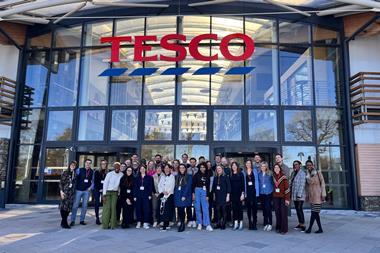
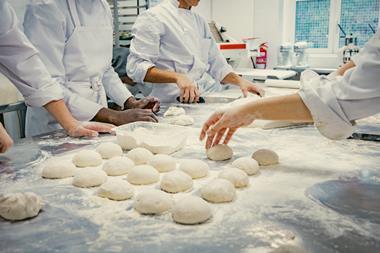


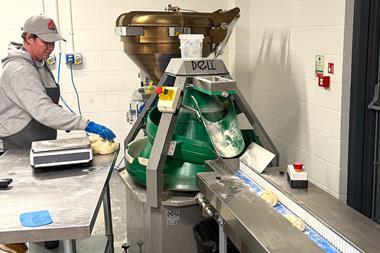
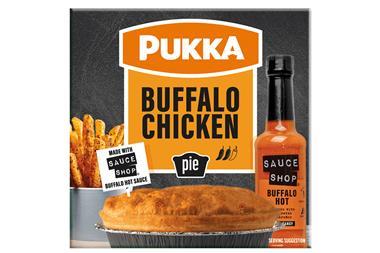

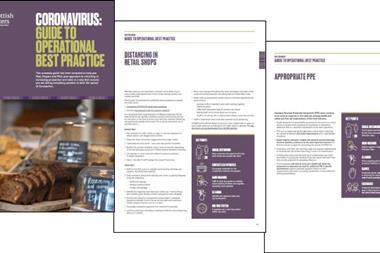
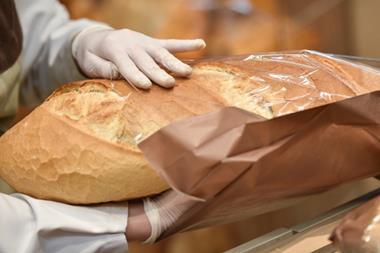
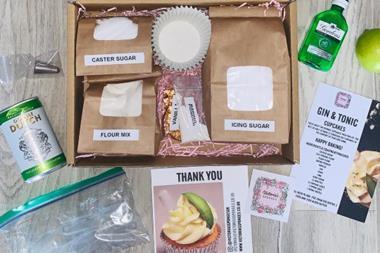
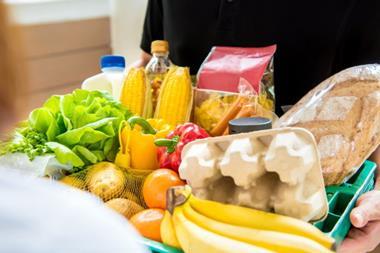
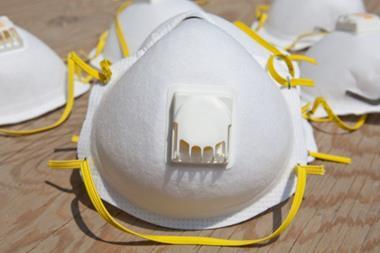

No comments yet